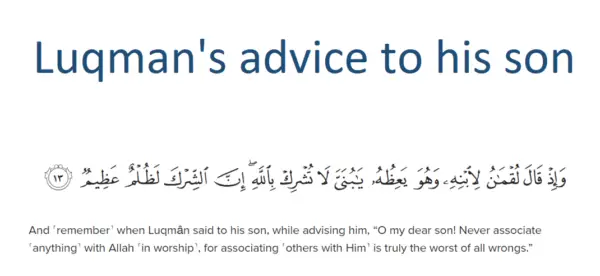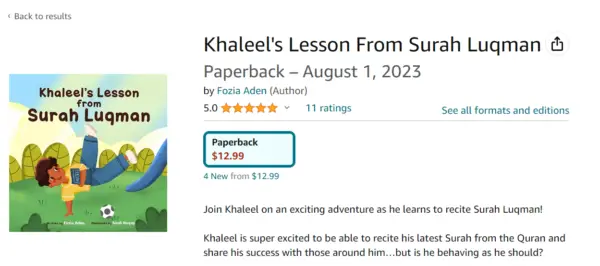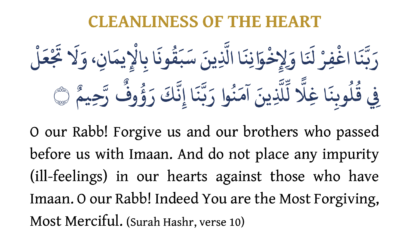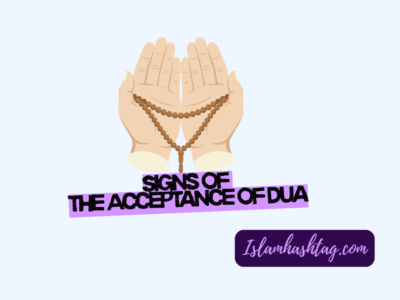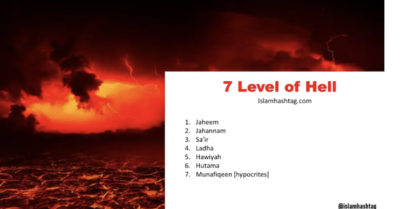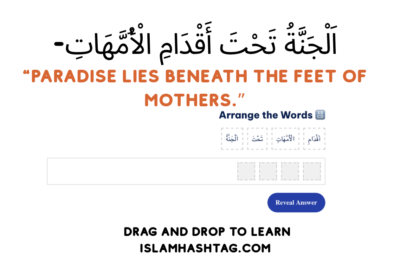What was Luqman’s advice to his son? luqman al hakim advice to his son
Who was Luqman hakim ?
According to a report of Wahb Ibn Munnabih, Luqman, was a nephew of Sayyidna Ayyub (Job) AS while Muqatil identifies him as his brother from his maternal aunt. It appears in Tafsir ul-Baidawi and elsewhere that he lived long, as long as the time of Sayyidna Dawud It is proved by other reports too that Luqman, appeared during the time of Sayyidna Dawud
Was Luqman a Prophet?
According to Ibn Kathir, the majority of the elders concur that he was not a prophet.
What does the ‘hikmah’ given to Luqman actually mean?
The word: (hikmah) has been used in the Qur’an (20 times) conveying several meanings such as wisdom, knowledge, reason, forbearance, patience, prophethood, and correctness of opinion.
Quran’s mention about Luqman’s advice
Allah says in Qur’an, Surah Luqman
We endowed Luqman with wisdom: ‘Be thankful to God: whoever gives thanks benefits his own soul, and as for those who are thankless––God is self-sufficient, worthy of all praise.’
- Luqman counselled his son, ‘My son, do not attribute any partners to God: attributing partners to Him is a terrible wrong.’
- And Luqman continued], ‘My son, if even the weight of a mustard seed were hidden in a rock or anywhere in the heavens or earth, God would bring it [to light], for He is all subtle and all aware.
- “O my dear son! Establish prayer, encourage what is good and forbid what is evil, and endure patiently whatever befalls you. Surely this is a resolve to aspire to.
- “And do not turn your nose up to people, nor walk pridefully upon the earth. Surely Allah does not like whoever is arrogant, boastful.
- Be moderate in your pace. And lower your voice, for the ugliest of all voices is certainly the braying of donkeys.”
First Luqman’s advice: soundness of belief
Out of these wise advices, first comes the soundness of beliefs, the primary article of which is that one believes in Allah Ta’ala to be the Creator and master of the entire universe without any association or partnership of anyone or anything. In consequence, one should not take anyone other than Allah as an object of worship, for no injustice can be as grave in this world as the act of one who stoops to equate some creation of Allah Ta’ala with the Creator.
Gratitude and Obedience to Parents is Obligatory – but, Obedience to anyone Counter to Divine Command is not Permissible
In effect, the command quoted above means: ‘No doubt, We have asked children to be grateful and obedient to their parents. We have even commanded them to be grateful to Us, and along with it, to be grateful and obedient to their parents. But, Shirk (the ascribing of partners in the pristine divinity of Allah Ta’ala) is so grave a transgression and so serious a sin that it does not become permissible for anyone, not even if one’s parents command or force someone to commit it. If the parents of a person start forcing him or her to take someone as a partner of Allah Ta’ala, even in that case, it is not permissible to obey their command.’
Now, at this place, where command has been given to be grateful to parents and fulfill their rights, also pointed out is its efficient cause. Is it not that one’s mother has undergone great trial in the phenomena of his or her life and survival? She has kept the child in her body for nine months remaining vigilant and protective all the time. Because of this, day by day, her weakness and discomfort kept increasing.
This she braved through. Then, even after the birth of the child, she handled the task of feeding the child, a task that demanded painstaking attention day and night and which also added to the already receding graph of her weakness. Since, it is the mother who faces most of the hardship in bringing up the child, therefore, the right of mother has been made to precede even the right of father in the Shari’ah of Islam.
The Second Luqman’s advice about Articles of Belief
One should irrevocably hold the belief that the knowledge of Allah Ta’ala surrounds every single particle of whatever there is in and around the expanses of the heavens and the earth with His most perfect power. Nothing can – be it the smallest of the small not commonly visible, or be it the farthest of the far, or be it behind layers upon layers of darkness and curtains – simply nothing can hide from the knowledge and view of Allah
My dear son, in fact, if there be anything to the measure of a grain of rye, and it be [hidden] in a rock or in the heavens and the earth, Allah will bring it forth. Surely, Allah is All-Fine, All Aware). Then, the all-covering
knowledge and power of Allah Ta’ala is, in its own place, a basic belief of Islam – and certainly, a great proof of Tauhld, the belief in the Oneness of Allah.
The Third Luqman’s advice -Bequest about the Correction of Deed
There are many obligatory deeds, but the greatest and the most important of these is Salah – and not simply that it is important by itself, it also happens to be the master deed that becomes the catalyst changing other deeds towards the better as was pointed out in the Holy Qur’an about it:(Surely Salah restrains from shamelessness and evil – Al-‘Ankabut, 29:45).
Therefore, out of the obligatory good deeds, the mention of Salah was considered sufficient when it was.said: (My dear son, establish Salah – 17). And as it has been explained earlier, the expression denoting the ‘iqamah’ of salah does not simply suggest the ‘making’ or ‘saying’ or ‘doing’ it. Instead of that, this term translated as ‘establish’ (in the absence of an exact equivalent) includes all attending considerations, such as performing it with due respect to its essentials and manners fully and faithfully, observing punctuality in its timings and being consistent in fulfilling its requisites.
The Fourth Luqman’s advice-Bequest about the Betterment of People
Islam is a collective religion. Betterment of the community, along with the betterment of the individual, is an important part of its social system. Therefore, the duty of Bidding the Fair and Forbidding the Unfair (amr bi ‘l-ma’ruf and nahy ‘ani ‘l-munkar) was mentioned along with as important a duty as the Salah. It was said: (and bid the Fair and forbid the Unfair -17).
Here are two duties: (1) Make yourself better and (2) make others better. Both need a lot of restraint and hard work. Facing these difficulties and remaining firm is no easy task. Particularly so, when those who stand to serve people by telling them what is good for them receive nothing but opposition and hostility in return. Therefore, while making this recommendation, it was also recommended: (and observe patience on what befalls you. Surely, this is among the matters of determination – 17).
The Fifth Luqman’s advice-Bequest about Social Manners
In verse 18, it was said: (And do not turn your cheek away from people). The expression: ‘وَلَا تُصَعِّرْ خَدَّكَ لِلنَّاسِ (la tusa”ir) is a derivation from:
(sa’ara) which is a disease among camels that causes a tilt in the neck similar to the stroke among human beings that makes the face become crooked. It carries the sense of turning one’s face away (in disdain). Thus, the verse means: ‘do not turn your face away from people when you meet them and talk to them for it is a sign of avoidance and arrogance and very much against the norms of gentle manners.’
In the next sentence of the verse, it was said: وَلَا تَمْشِ فِى ٱلْأَرْضِ مَرَحًا (and do not walk on the earth haughtily – 18). The last word: (maraha) denotes walking proudly with assumed airs. The sense of the statement is that Allah Ta’ala has given this earth the lowest profile from among the entire range of elements He created. Is it not that you were born from it and on it you walk around? Know your reality and do not walk haughtily. This is the way of the arrogant. Therefore, after that, it was said: إِنَّ ٱللَّهَ لَا يُحِبُّ كُلَّ مُخْتَالٍۢ فَخُورٍۢ ١٨ (Surely, Allah does not like anyone arrogant, proud – 18).
At the end of the fifth recommendation it was said: وَٱغْضُضْ مِن صَوْتِكَ ۚ (and lower your voice – 19). ‘Lowering’ means: Do not “raise your voice any more than necessary. And do not shout – as it appeared in the case of Sayyidna ‘Umar ra immediately earlier. He talked in a manner that his audience would hear him without having to put any strain on their ears. Thereafter, it was said إِنَّ أَنكَرَ ٱلْأَصْوَٰتِ لَصَوْتُ ٱلْحَمِيرِ ١٩(Surely, the ugliest of voices is the voice of the donkeys – 19).
Regarding social manners, four prohibitions were mentioned here: (1) The prohibition of talking to and meeting with people face turned arrogantly; (2) the prohibition of walking haughtily on God’s earth; (3) the instruction to be moderate in one’s walking; and (4) the prohibition of talking very loudly.
Book Recommendation-
Beautiful Isn’t it? Share the khair.
Follow us in Facebook
Discover more from Islam Hashtag
Subscribe to get the latest posts sent to your email.

